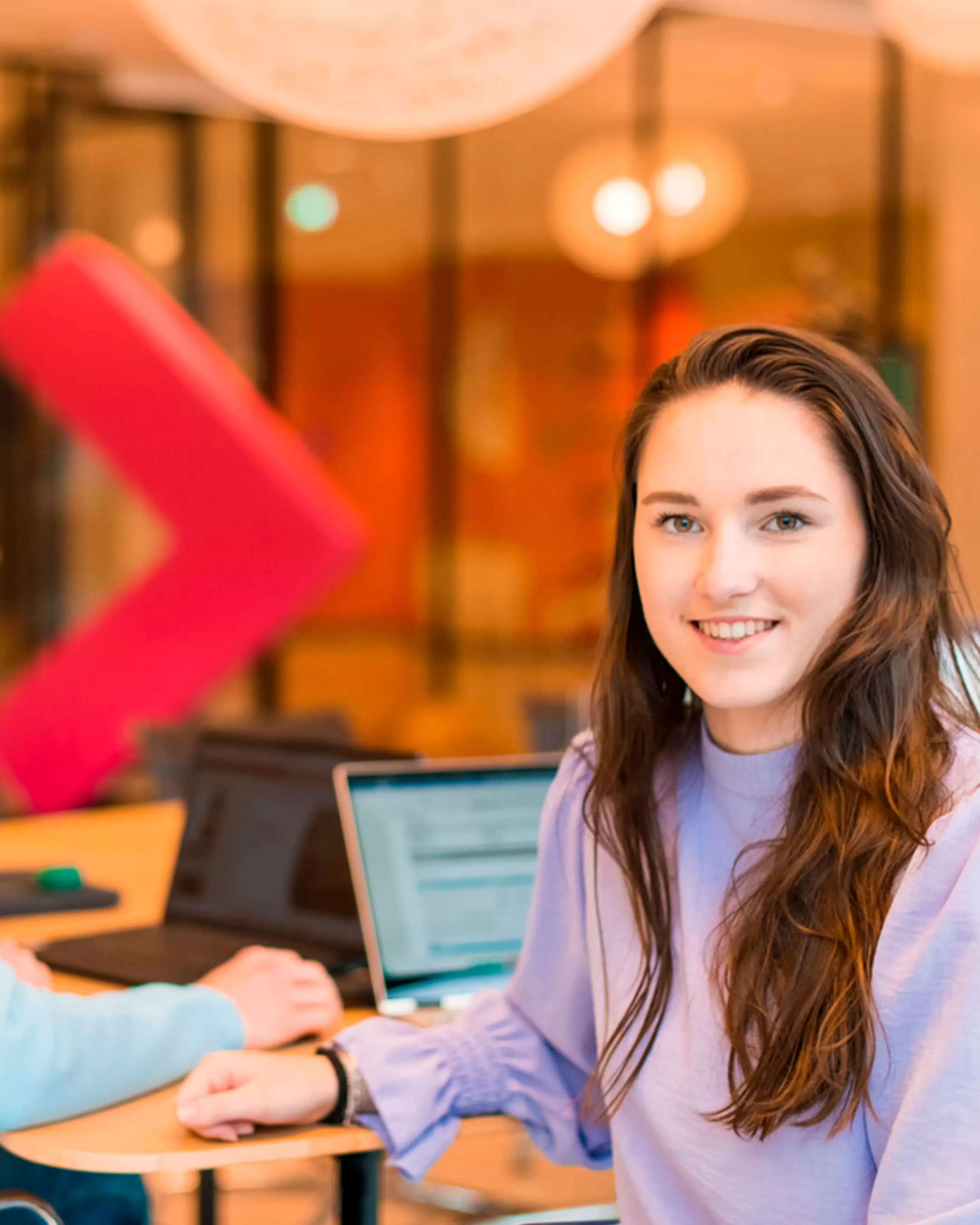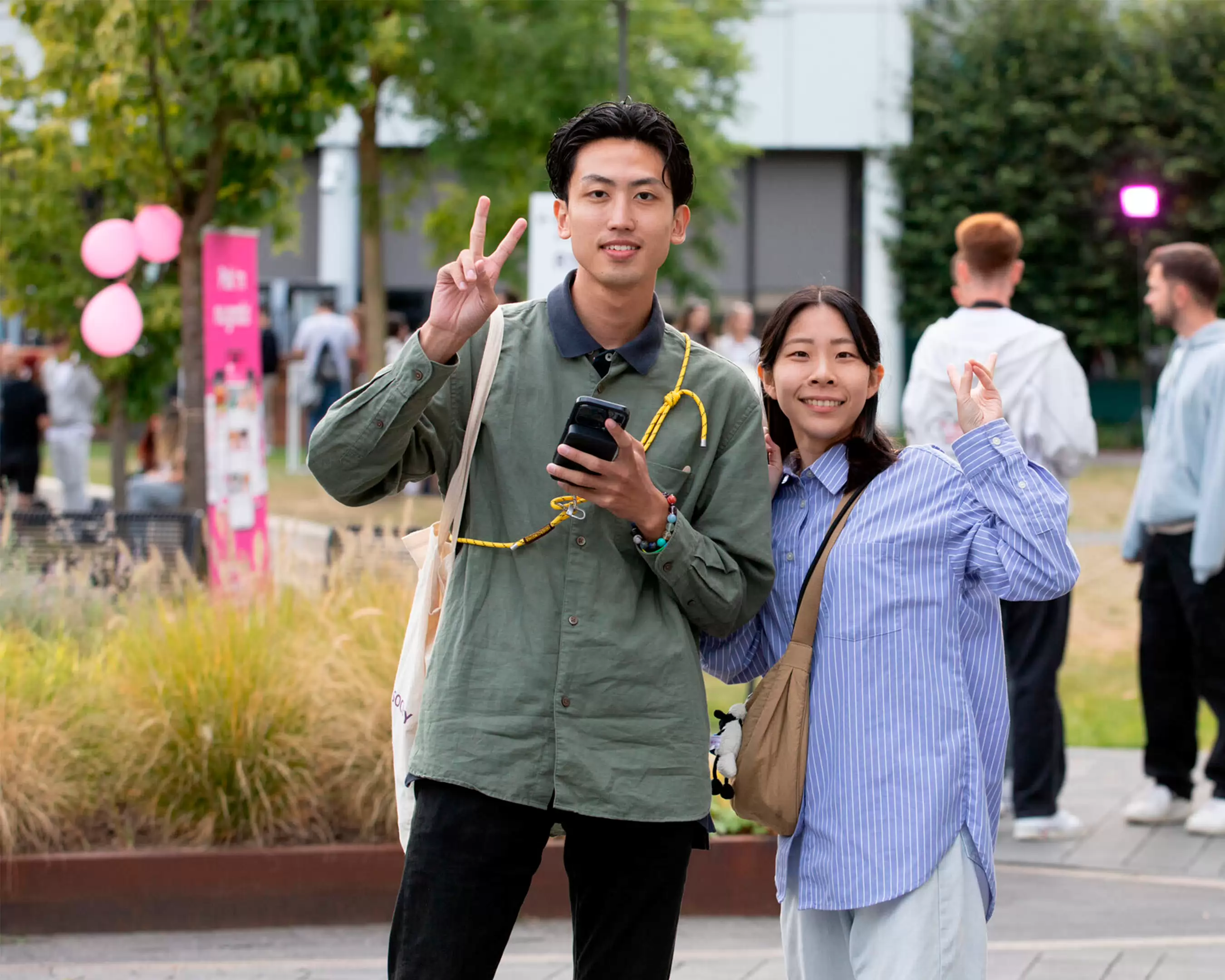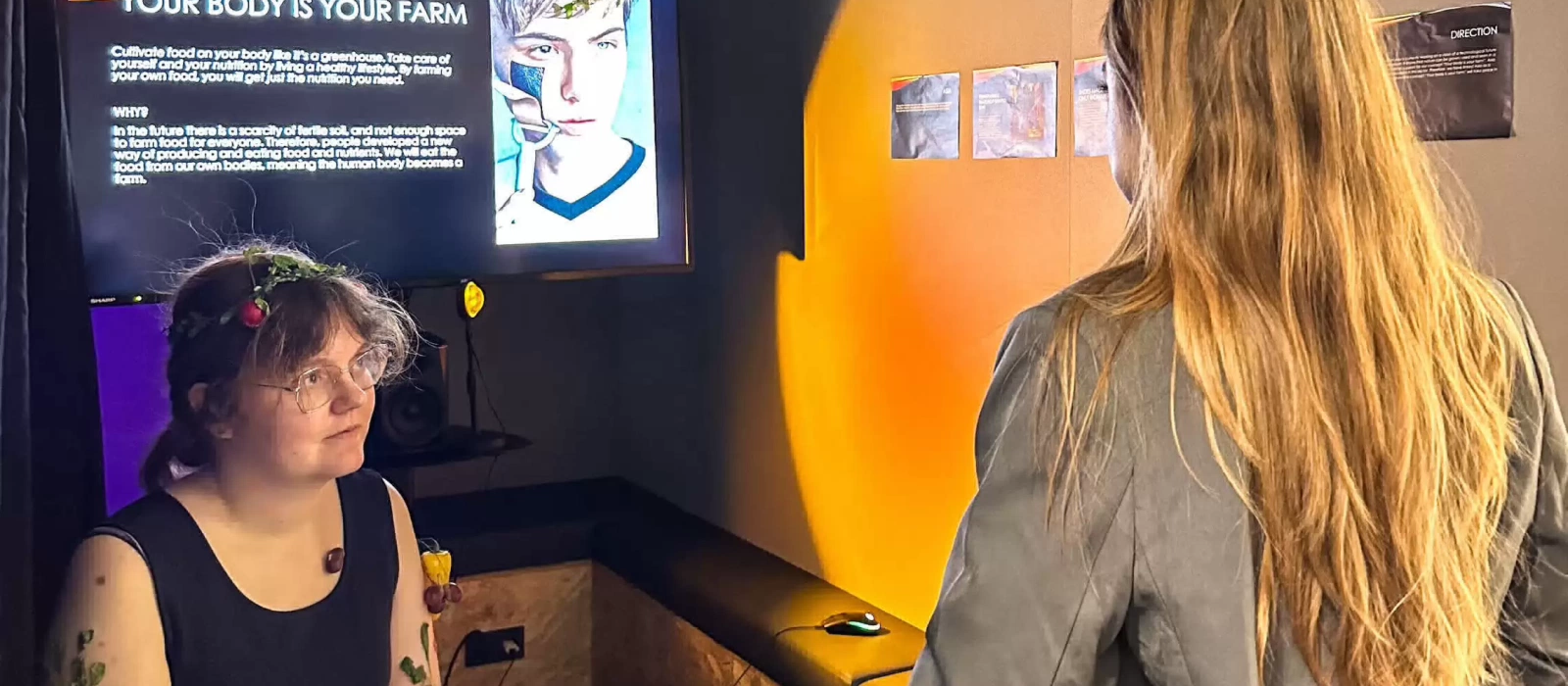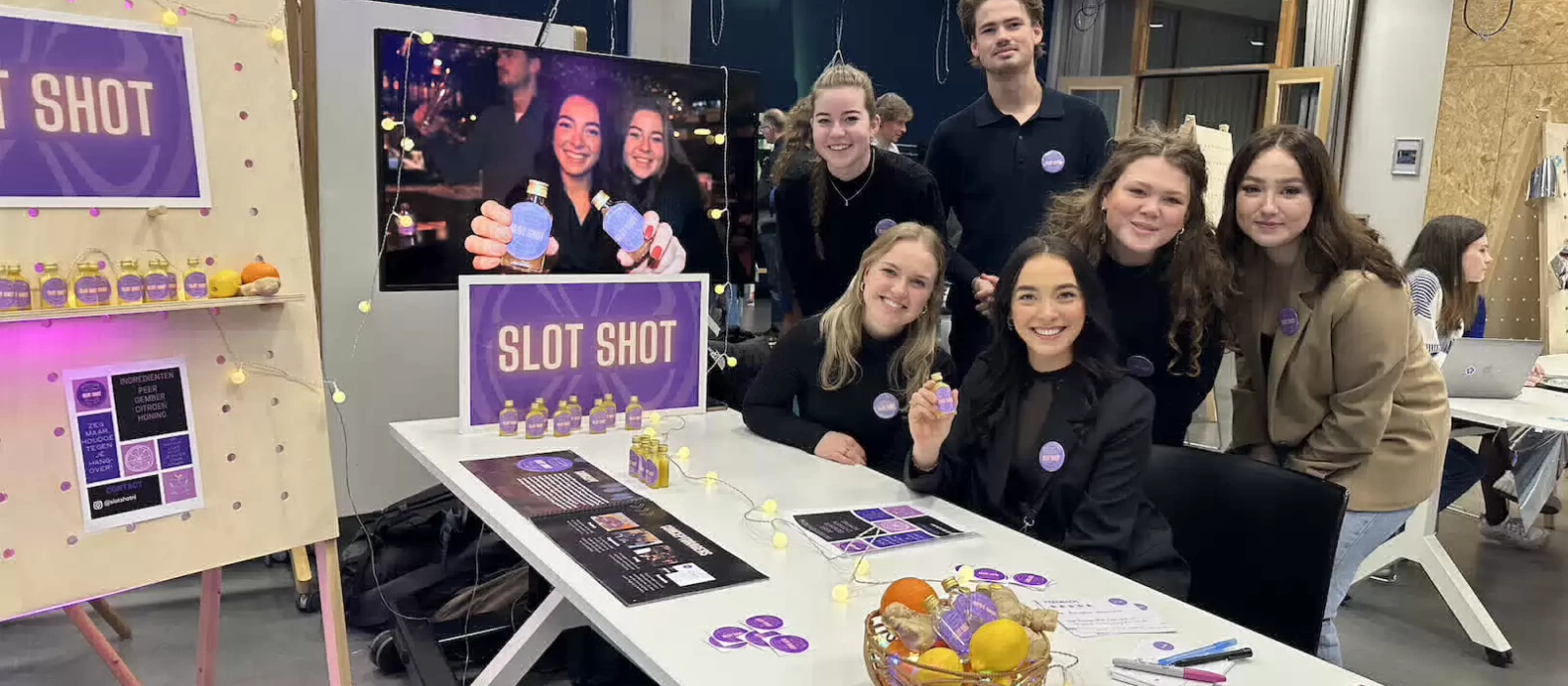

Trend-driven Entrepreneurship
About the exchange programme
Trend-driven Entrepreneurship is a second year semester programme offered by our bachelor programme Trend Research & Concept Creation in Lifestyle. Students learn how to design and shape lifestyle concepts by working on actual issues from the practical field, enhancing the quality of life on both individual and social level. This is accomplished by working on building blocks and competences.
Why this programme?
- Spot and use the latest market trends to create innovative business ideas.
- Gain hands-on experience through projects with real companies, giving you practical skills for your future career.
- Learn from experienced entrepreneurs and teachers, gaining insights into successful business strategies.
More about Trend-driven Entrepreneurship
Students work individually, but central to the semester programme is a group project: a cooperative effort in which students conduct market-oriented research to identify a need/demand among particular target groups. Students work on their own commission and develop a service or product which is then actually realised and introduced on the market. Next to central project, students need to develop certain skills, which are clustered among the following skill modules: Trend research, concept design, realising or advising. During the whole semester students are guided by our expert coaches and professors. Eventually students work on a semester portfolio, where the entire portfolio will be reviewed by means of an assessment.
Outside the study programme, you gain additional inspiration by reading, going out, and actively seek new experiences. You can do this by attending conferences and fairs, watch documentaries, visit a museum, listen to podcasts, read, and seek for alternative models and examples in practice.
Admission requirements
For each program, the minimum level of English required will equate to the level of IELTS 6.0 (International English Language Testing System) or TOEFL iBT 80 (Test of English as a Foreign Language) or CEFR B2 (Common European Framework of Reference for Languages).
Additional requirements
Undergraduate – when attending the semester programme it is assumed that students have some basic knowledge and skills in either (market)research and/or ideation in trend research and development
How to apply as an exchange student
Applications should always be submitted via the International Exchange (or Erasmus) Officer at the home university. If several versions of the programme are offered, please indicate for which version you would like to apply to (Programme I, Programme II, Programme III, etc.) This officer will send your application request (nomination) to Fontys. Once Fontys has accepted the application, your Fontys study department will send you a link to a web application called Mobility Online.
Deadline for application
Fall semester: 15 May
Spring semester: 15 November
Note: Not all exchange programmes are available every semester. To find out when this programme is offered, please check its specific details.
How will your course programme be recognised by your home university?
Fontys will provide you with a so-called ‘Transcript of Records’, which will clarify the results that you have achieved. Depending on your results, you will receive a maximum of 30 ECTS credits. ECTS credits are recognised throughout Europe. The agreement between your home university and Fontys University of Applied Sciences will usually include a condition whereby the credits that you obtain will be recognised and transferred into the records kept by your home university.
Assessment
At the end of the semester, a summative test takes place by means of an assessment. In this assessment, you have to prove that you have reached a certain competence level. This mid-term assessment is a portfolio assessment. You submit your assessment portfolio, which serves as the basis for a conversation with two assessors. This is a summative assessment moment, which means that it comes with an evaluation of whether you have developed this competency insufficiently, sufficiently, good, or excellent. Per competency you are awarded ECTS when your level is sufficient, good, or excellent.
Portfolio
The assessment portfolio is an instrument to find out if you have the knowledge, skills and attitude aspects that are described in TCL’s competency profile (see annex). You use this portfolio to demonstrate what you have achieved and how. It is a reflection of your efforts, your competency development and results from semester.
The assessment portfolio is combined with a criteria-oriented interview to dive more deeply into your evidence material and underlying thought and decision processes.
Practical information
- Start moment(s)
- September
- Location
- Tilburg
- ECTs
- 30
- Language
- English
- Duration
- 20 weeks
- Contact hours
- 15-20 hours per week
Please note that the expenses noted below are estimates only for a semester abroad at Fontys and that the actual expenses will depend on your personal lifestyle. If excursions are included in the curriculum, the costs are for the student him/herself. The study programme is obligated to offer a free option as well. You will receive more information about extra costs if applicable in the course descriptions you’ll receive once accepted to the programme.
Tuition Fees
Students on exchange from Fontys ACE partner universities will not be obliged to pay tuition fees. For all other students, a fee of € 75 per ECTs credit will apply (i.e. a 30 ECTs programme = € 2,250).
Living Expenses
Students can expect general living expenses to amount to approximately € 700 to € 1,000 per month. This amount includes accommodation (i.e. approximately € 500 to € 600 per month all inclusive), food, transport and personal expenses.
Visa Expenses
These costs vary depending on your country of origin. EEA students do not require visas and as such, no expenses will be applicable. Students requiring Entry Visas and/or Residence Permits can expect to pay charges of approximately € 600. Grants In theory, students hailing from the European Union, Norway, Switzerland, Iceland and Turkey may be eligible for Erasmus Study
Grants
Please refer to the International Office at your home university for further information.
It is not always easy for exchange students to find accommodation in the Netherlands. Therefore, Fontys offers a service to provide students with assistance in securing suitable accommodation (i.e. a student room) for their exchange at Fontys. For information go to the Fontys accommodation page.
Application procedure
- After nomination by your university for an exchange programme at the Fontys Academy for the Creative Economy (Fontys ACE) you will be asked to enrol through Mobility Online (our online application system).
- Once you’ve been accepted in Mobility Online you can continue the application steps, including filling in the accommodation form before June 15 (for Fall semester) or December 8 (for Spring semester).
- You can give your preference for a basic student room or a more luxurious student room with services included.
- The accommodation officer will send you detailed information about the housing agency after the housing deadline.
- The housing agency will get in touch with you and you'll have to transfer two months of rent + deposit before arrival to housing agency (no payment = no entrance accommodation, but still the obligation to close rental contract).
- Accommodation is available on the agreed date.
- You are obliged to accept and pay for the offered room for the whole period.
The Netherlands
The Netherlands is a country in western Europe with a multicultural population of approximately 17 million people. It has a very rich history in international trade, education, art, literature, design and sciences. This tiny country is famous for the great Dutch Masters, painters like Rembrandt and Van Gogh, but also pioneers in the EDM scene, such as Tiesto, Armin van Buuren and Martin Garrix. They transformed the world around them just like today’s Masters: designers, concept developers, futurists. The Dutch creative industry of the 21t century is growing rapidly and plays a leading role in strengthening the innovative capacity of the country.
Tilburg
More than 27,000 students study in the city of Tilburg in the south of The Netherlands. 13.5 percent of this city’s 200,000 inhabitants are students. Tilburg has a lot of cafés where you can enjoy student life. Students quickly find their favorite bars/pubs, restaurants and other meeting places. Catching a movie, enjoying the night life, a pop concert, visiting museums or going to the theatre: Tilburg offers a great number of possibilities.
Check out vibrant TilburgFor more detailed information about practical matters, such as financial matters, residence permit, health insurance and accommodation, please click on the button below.



